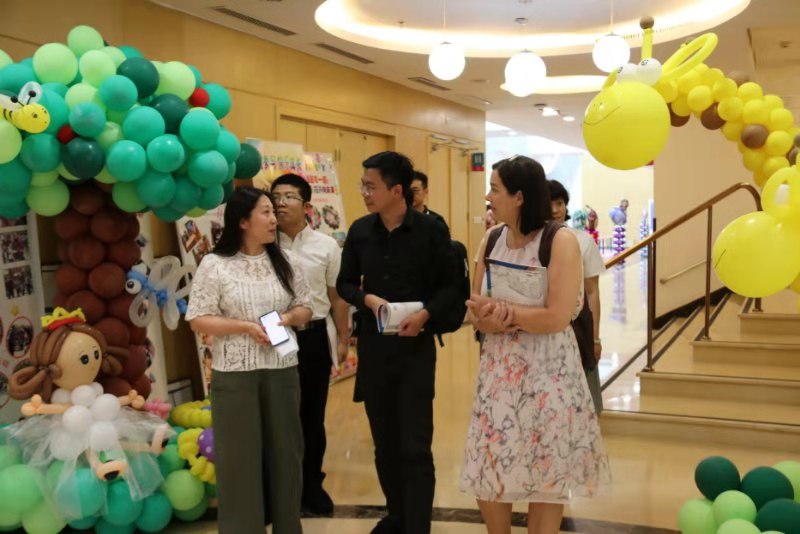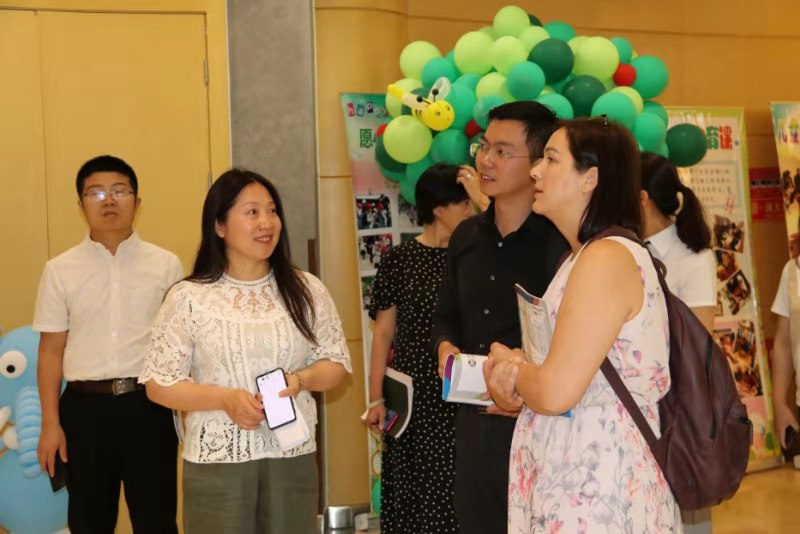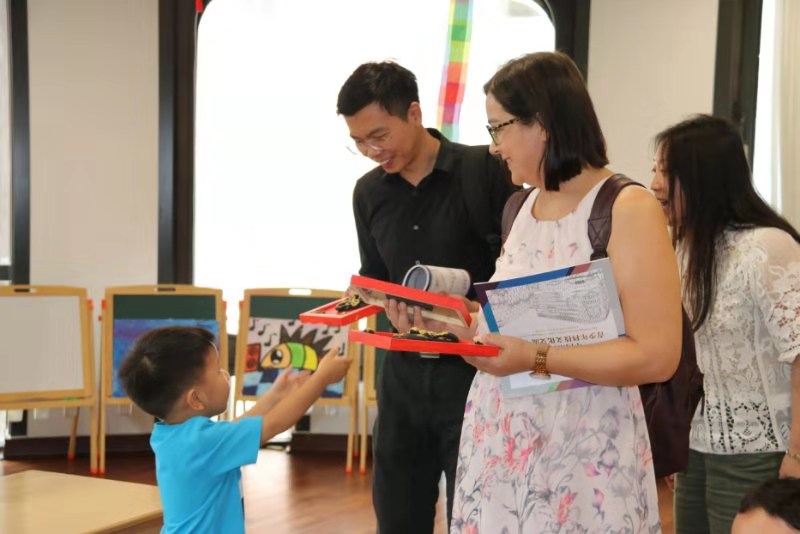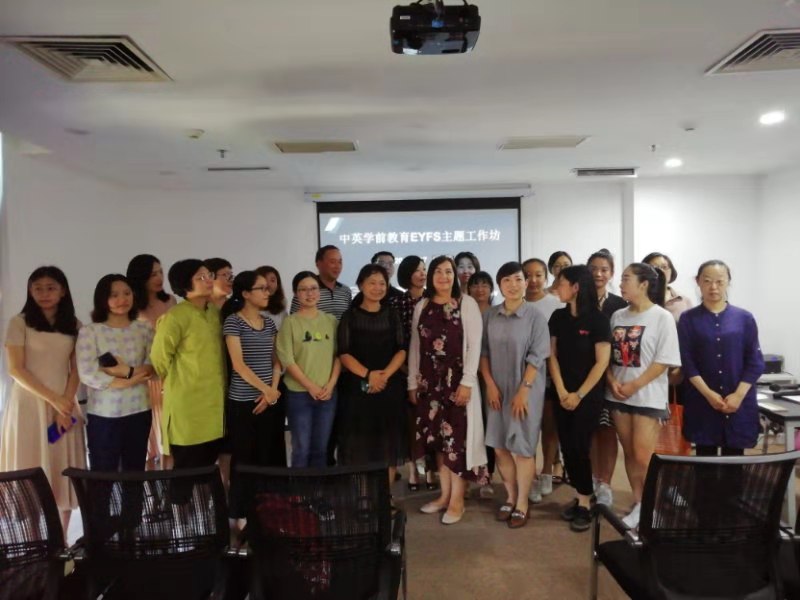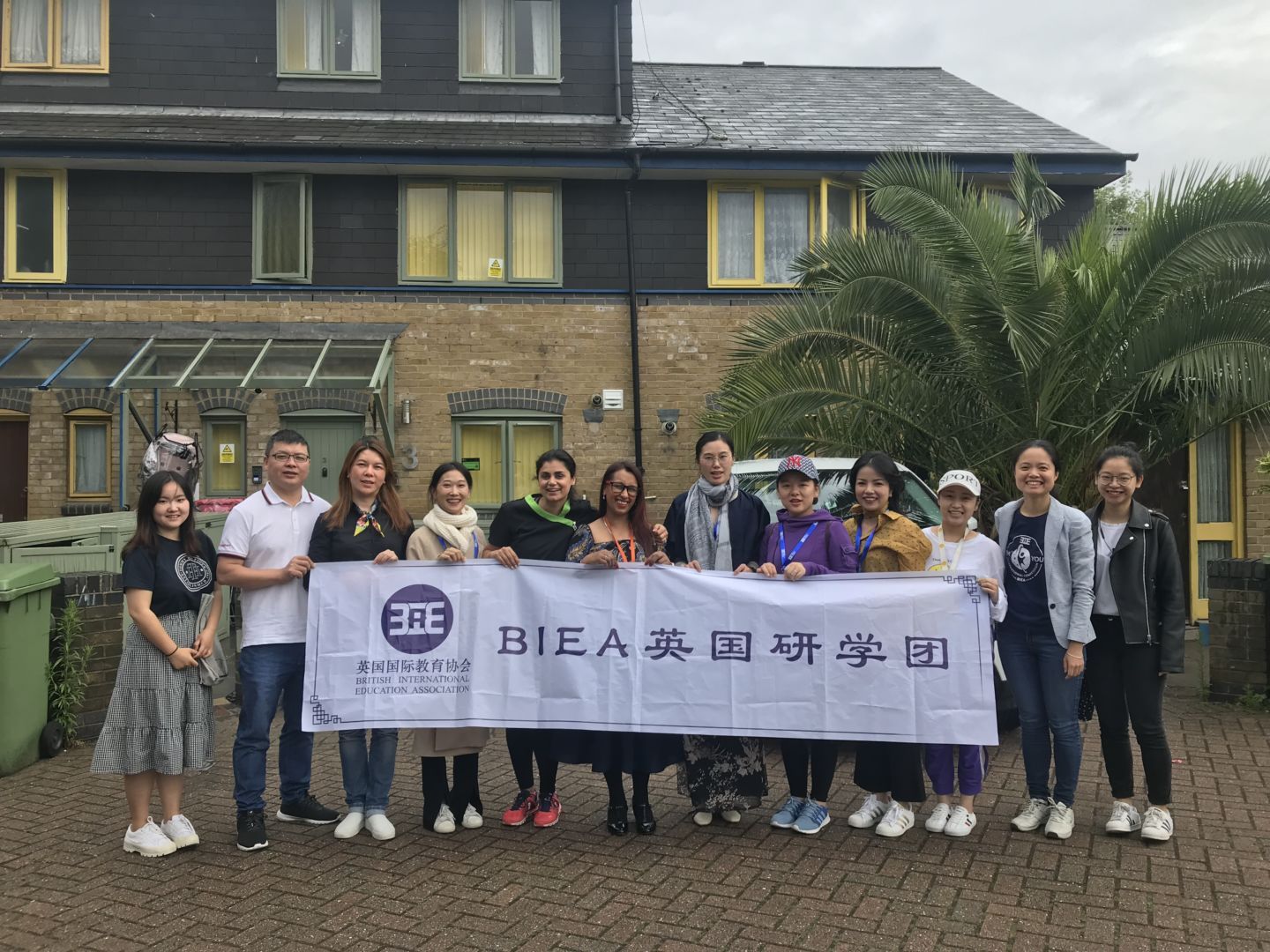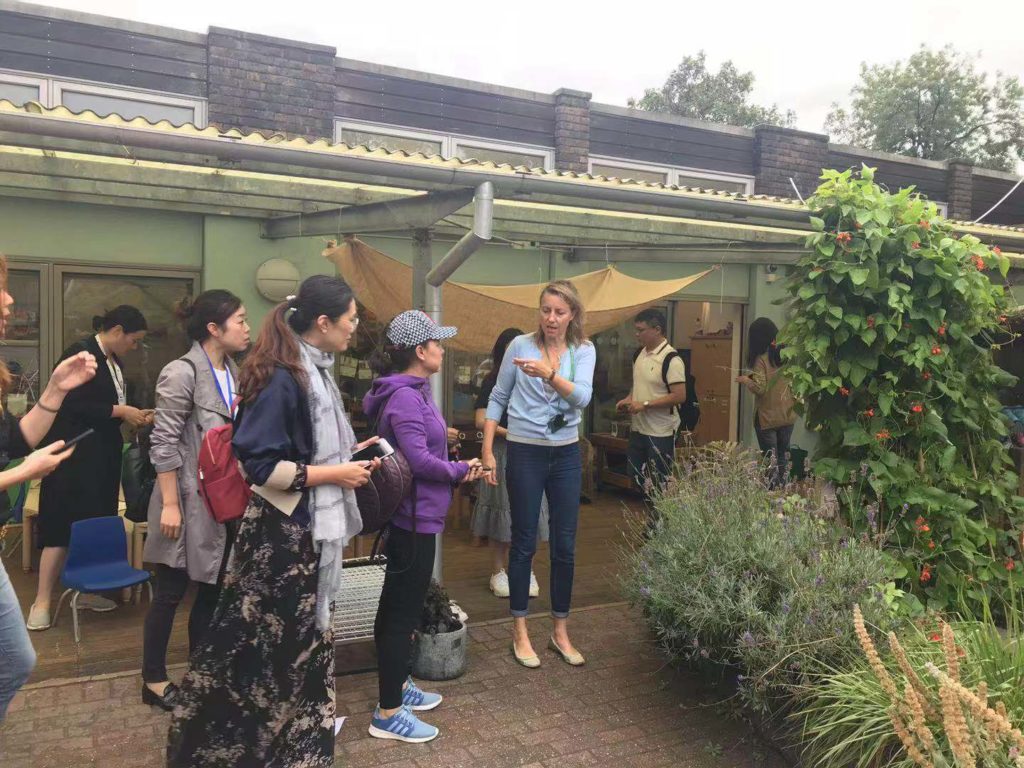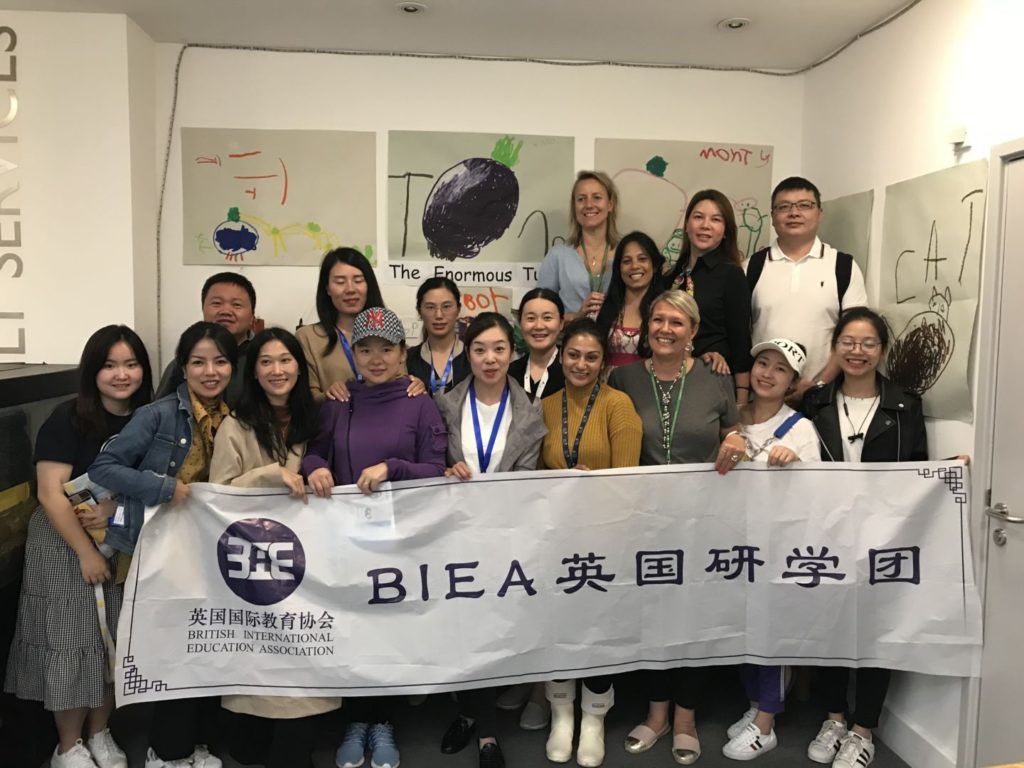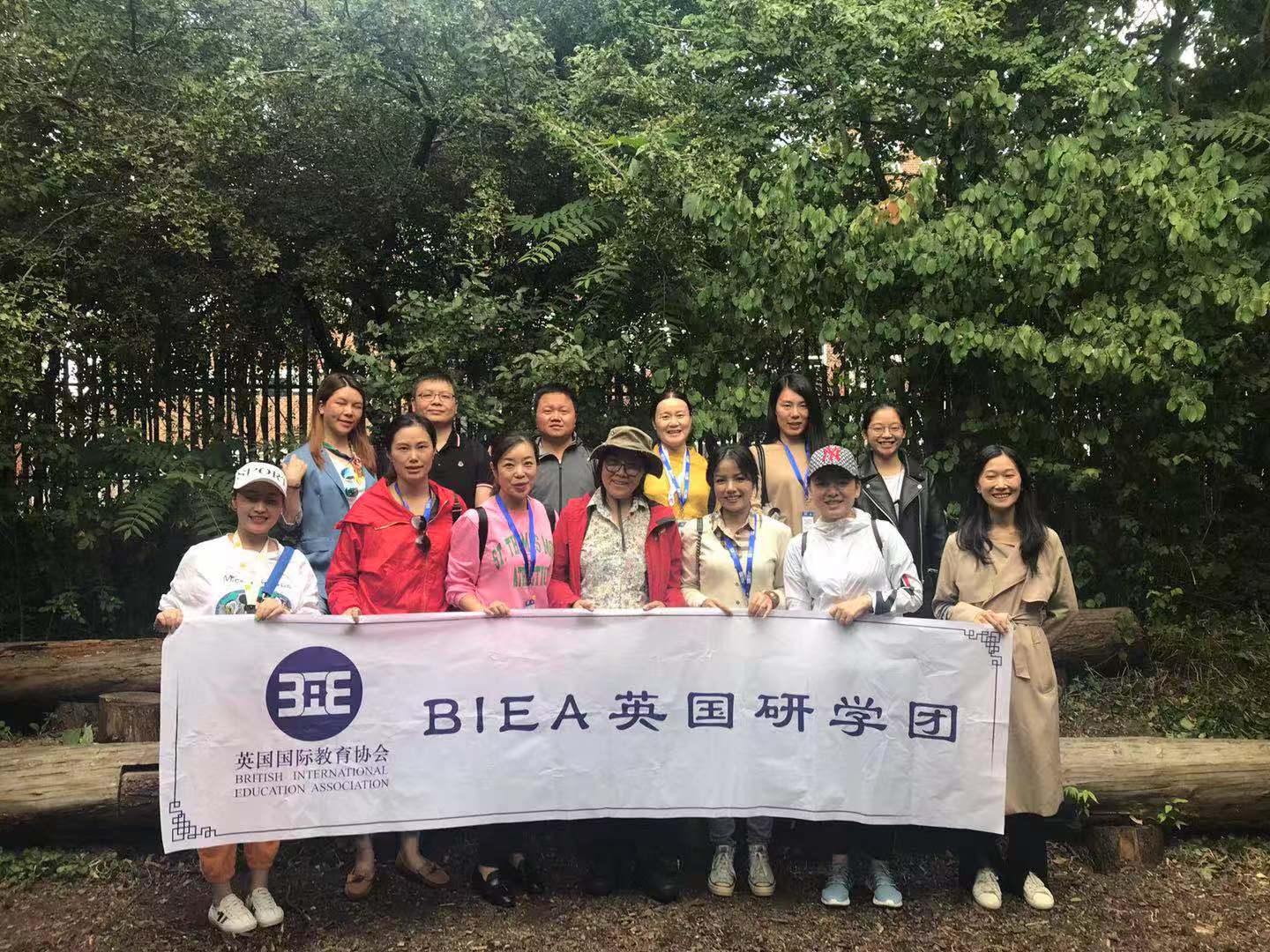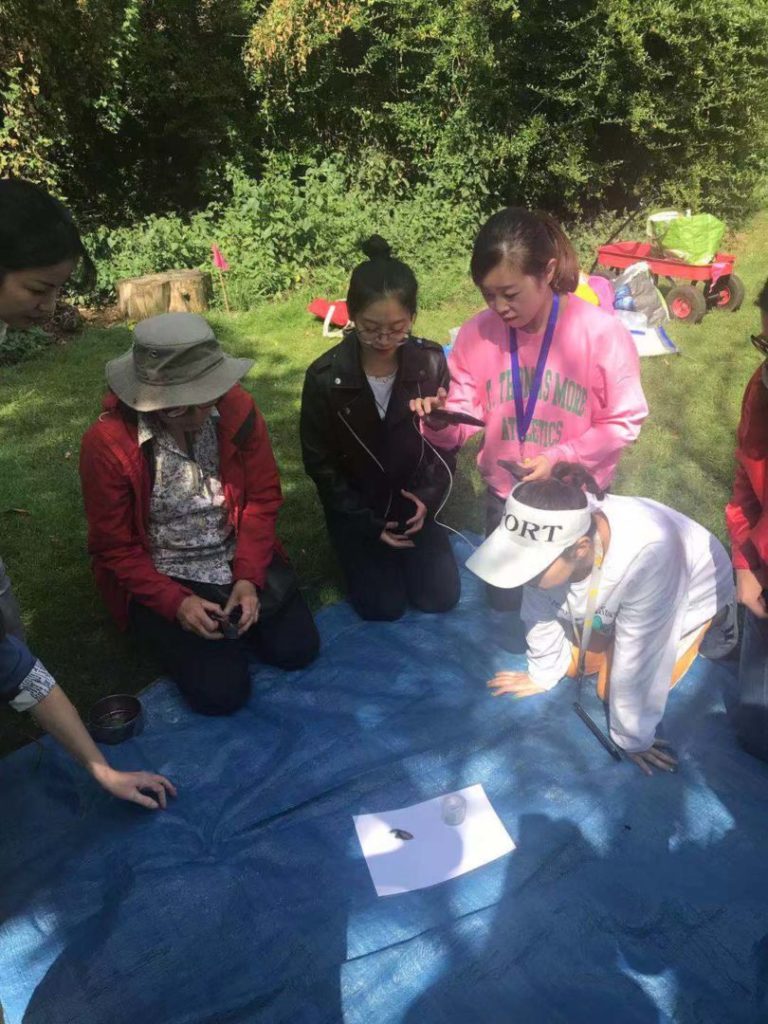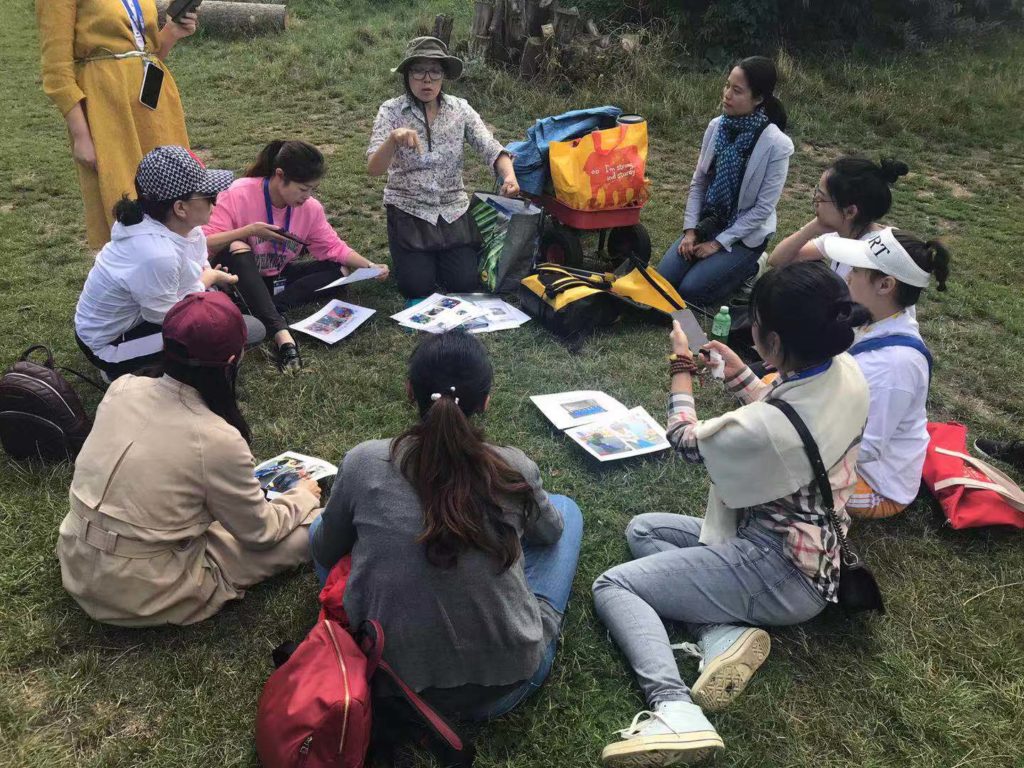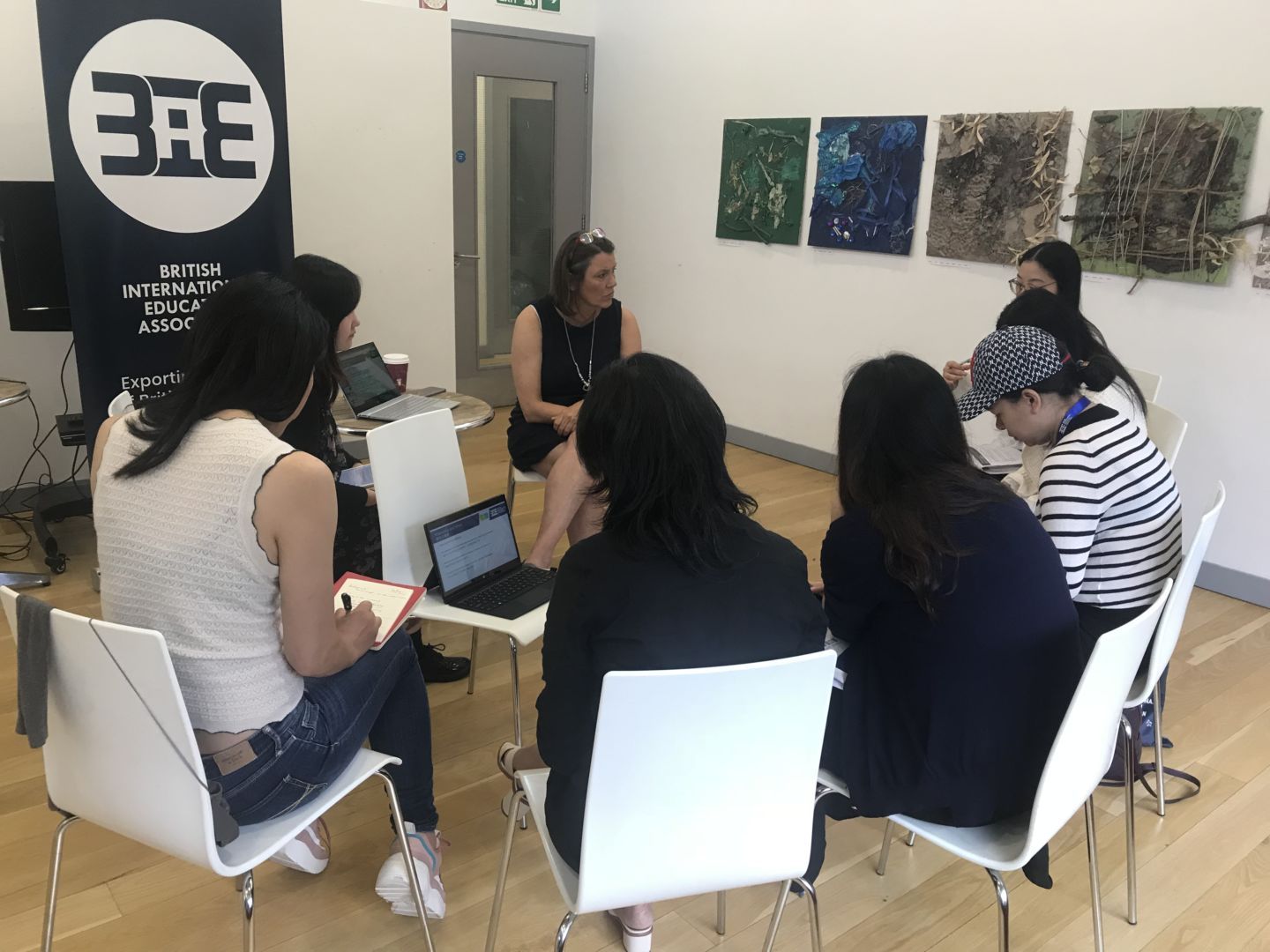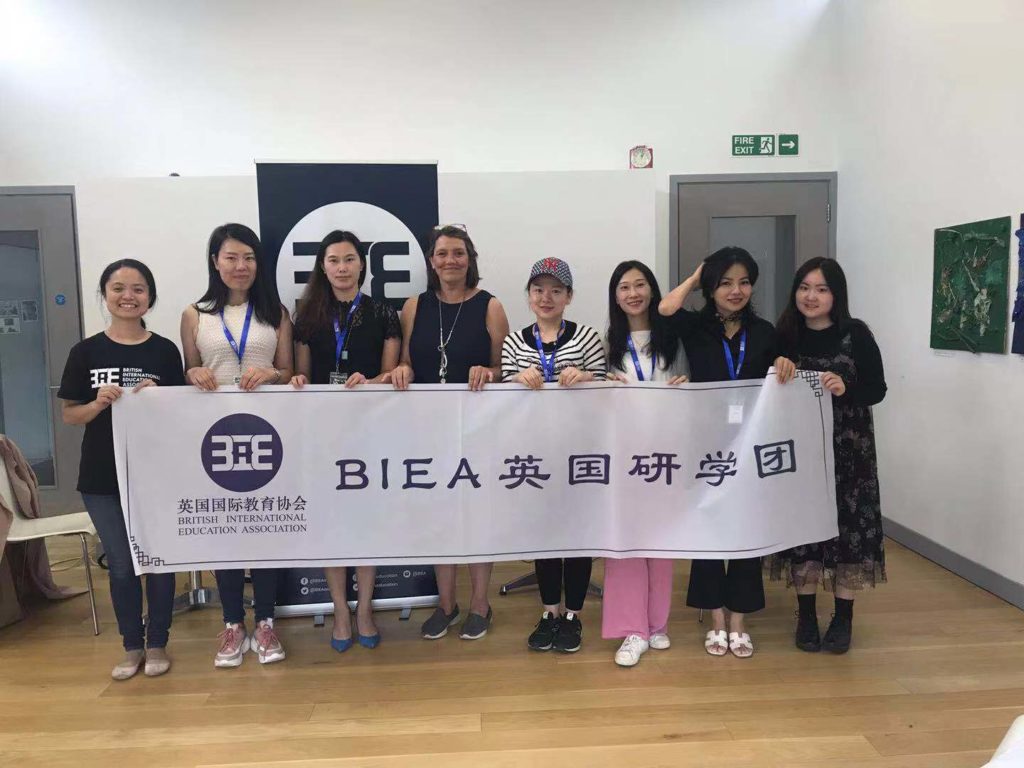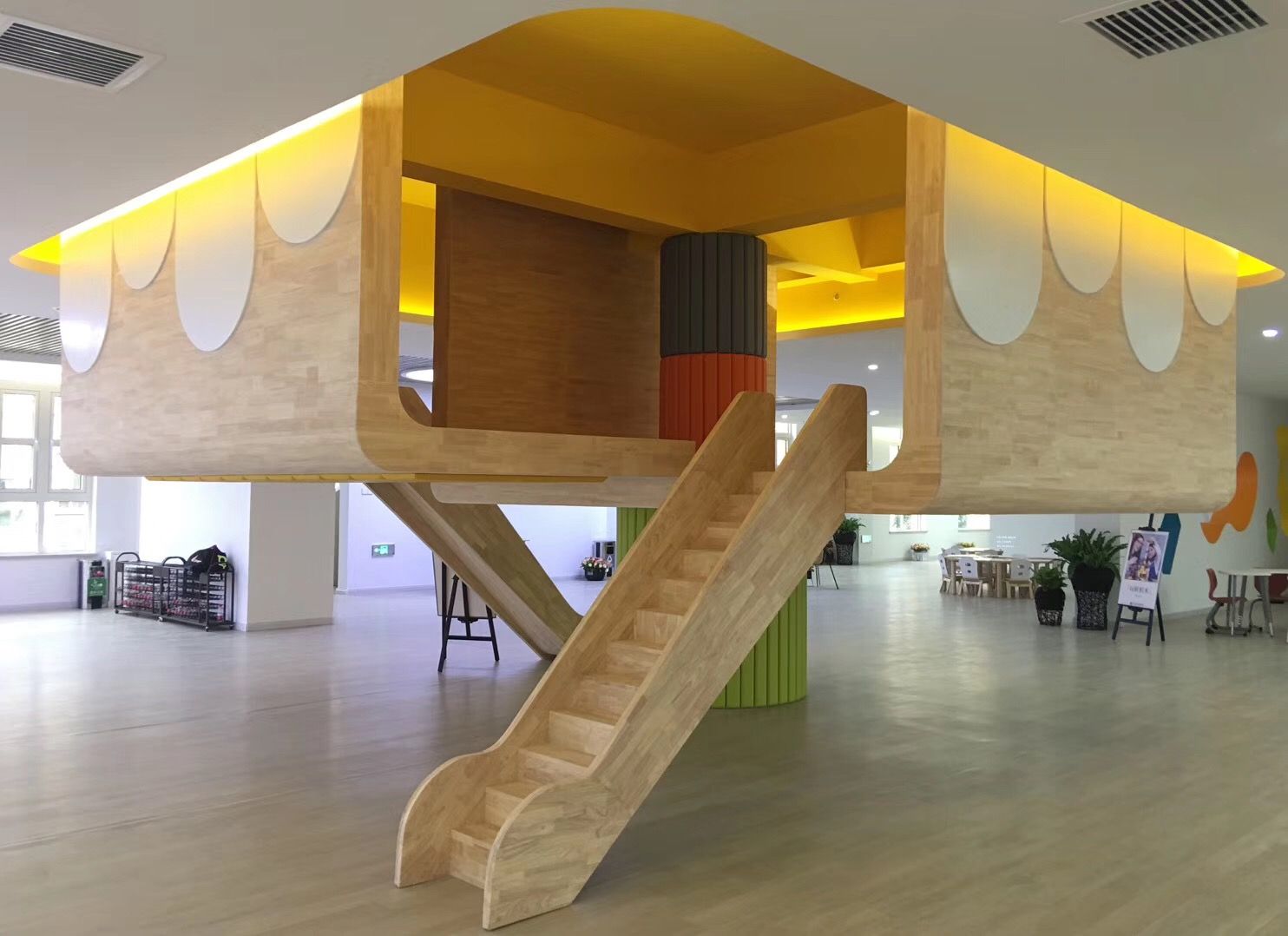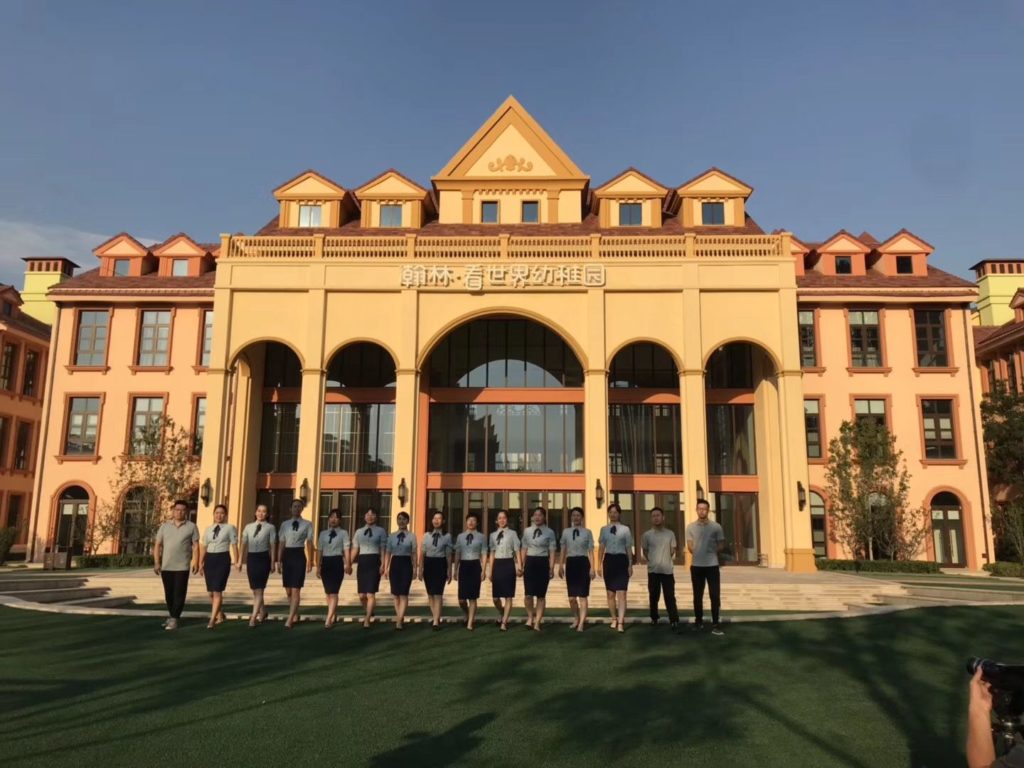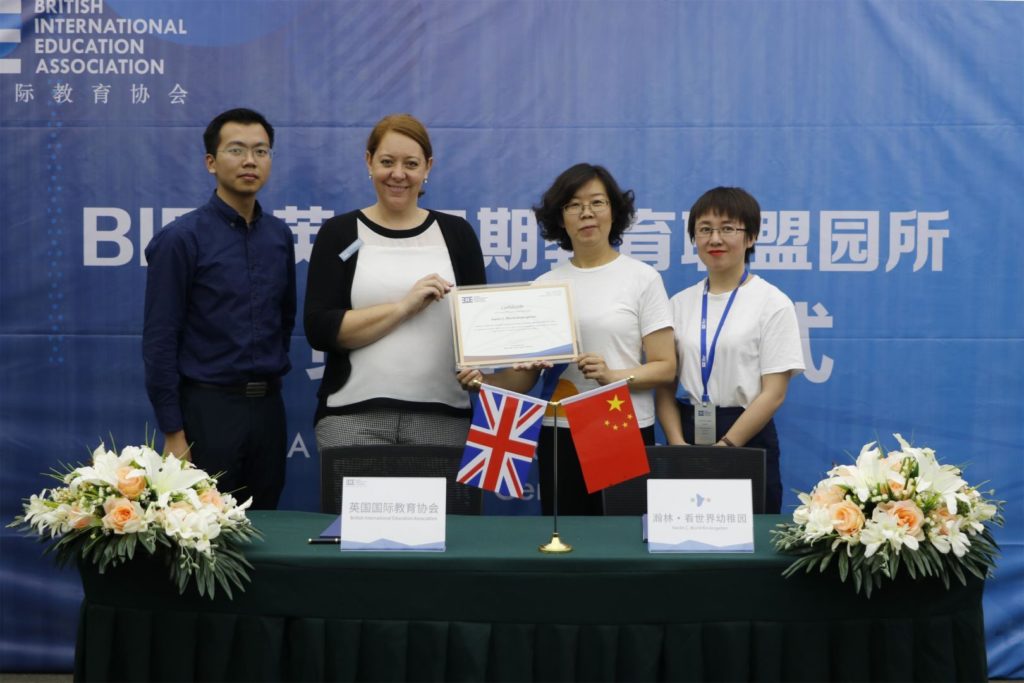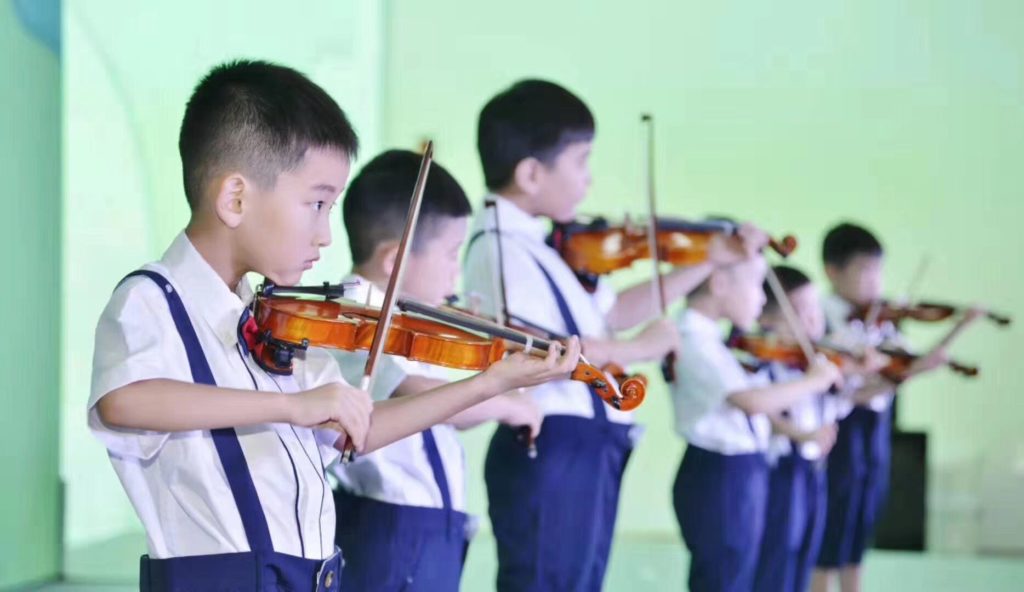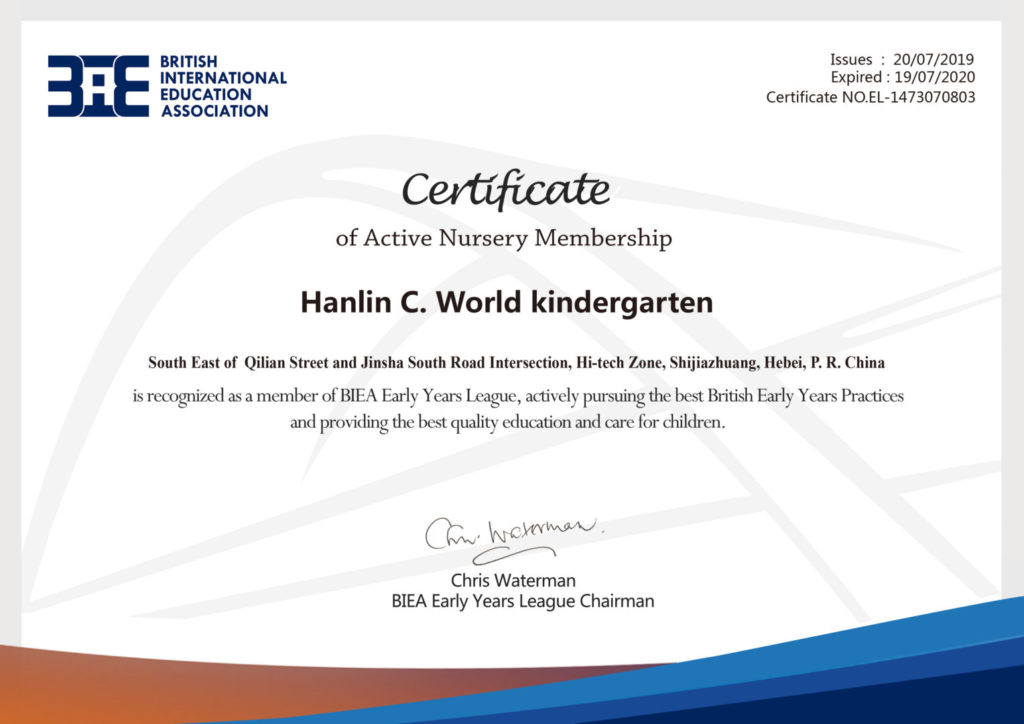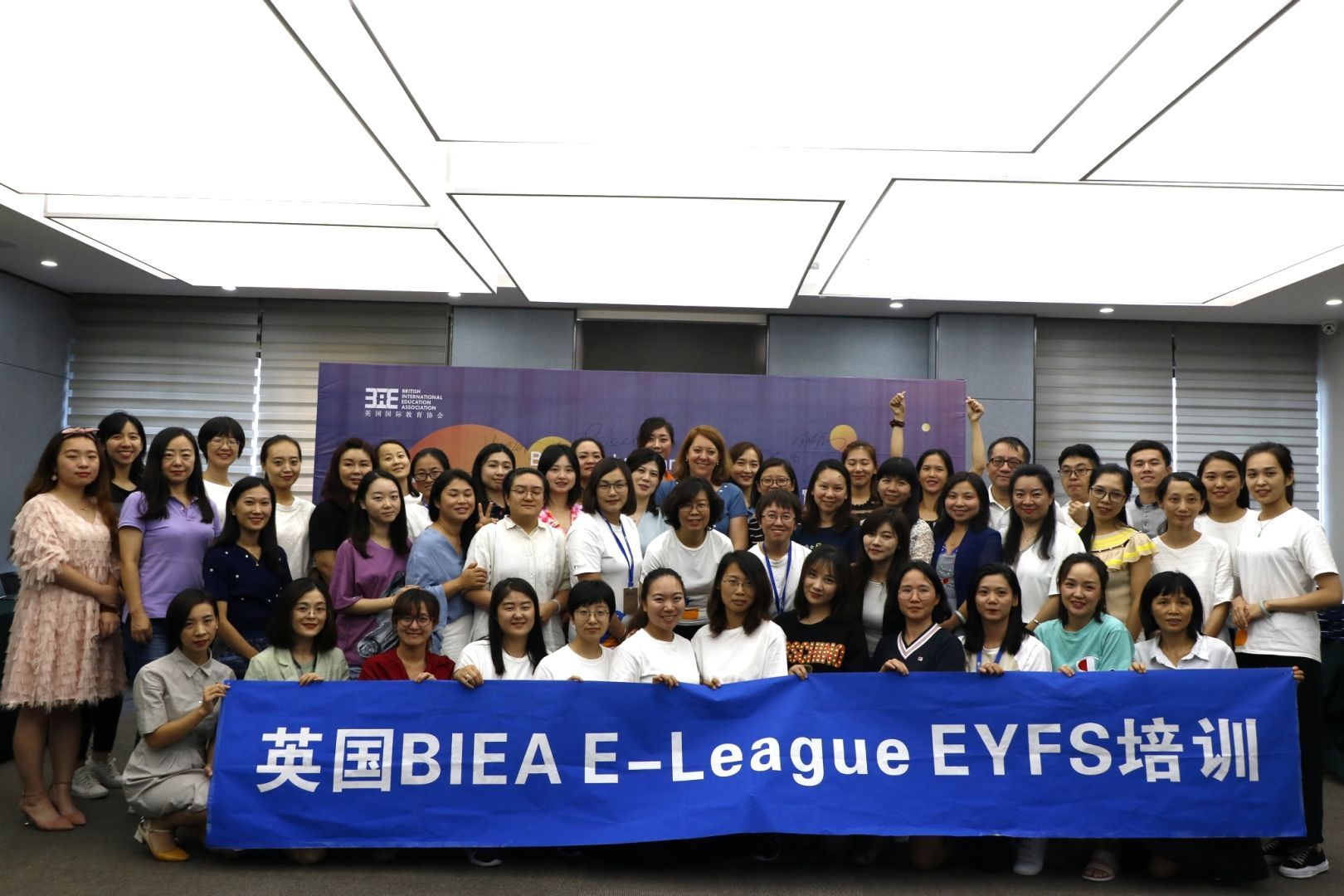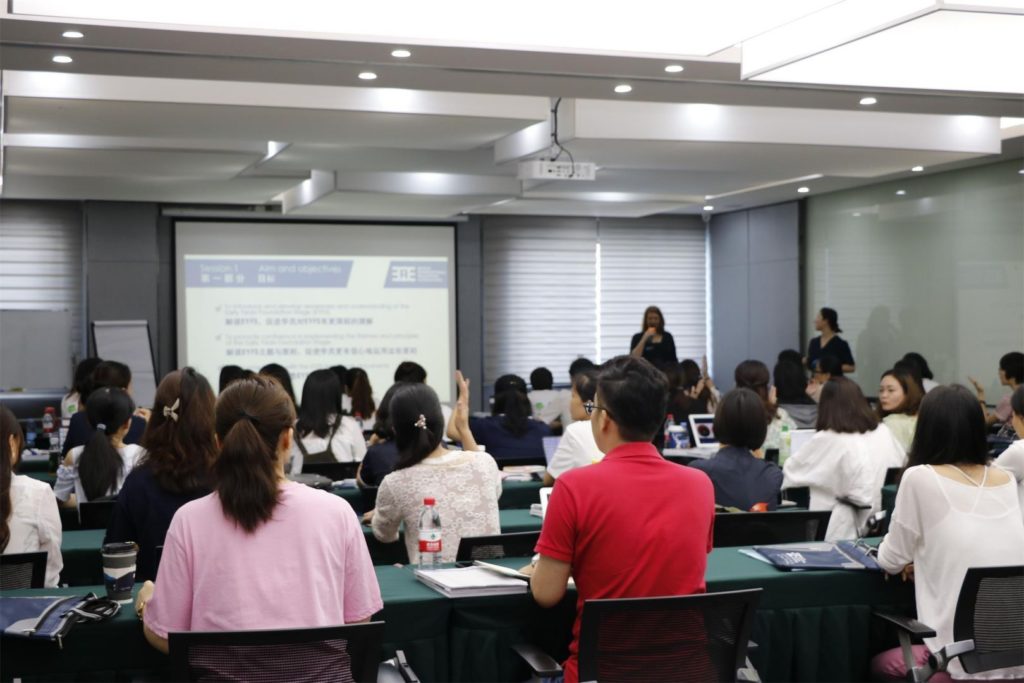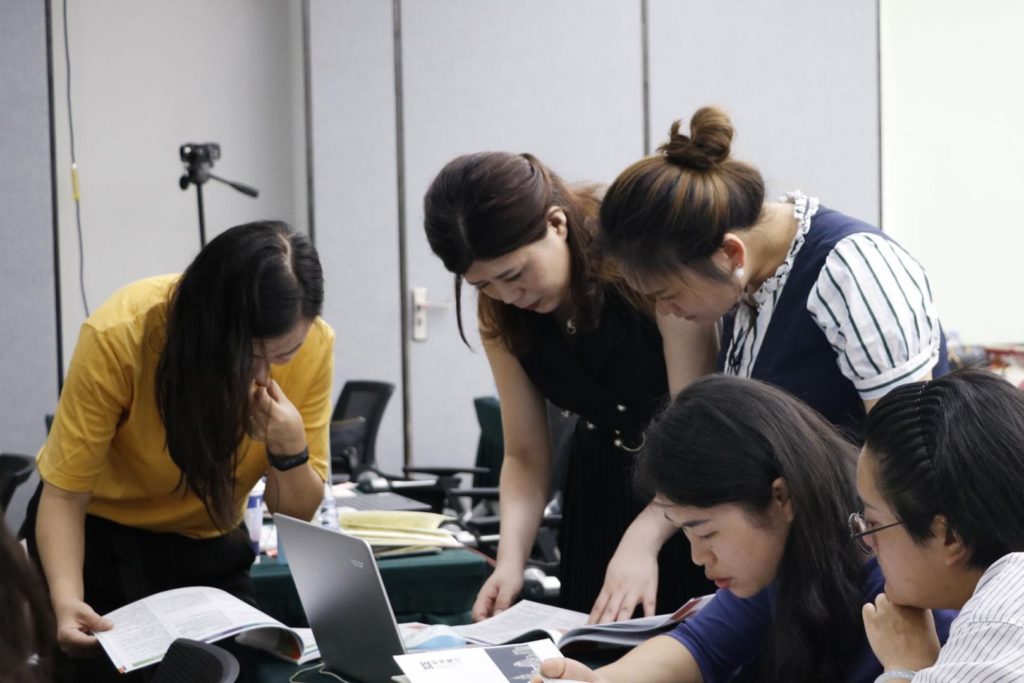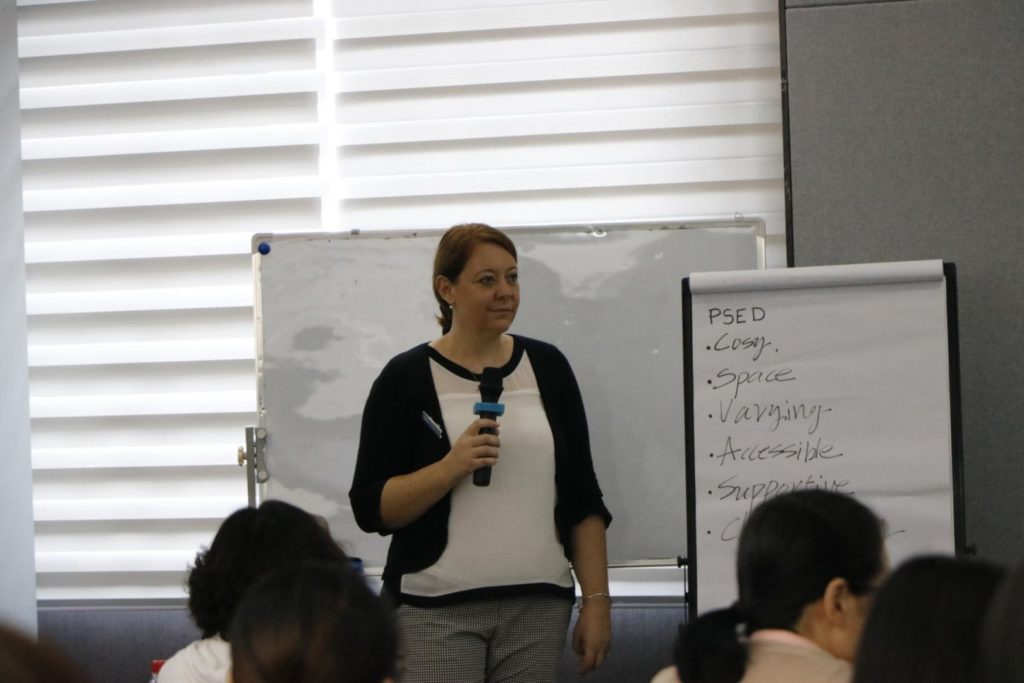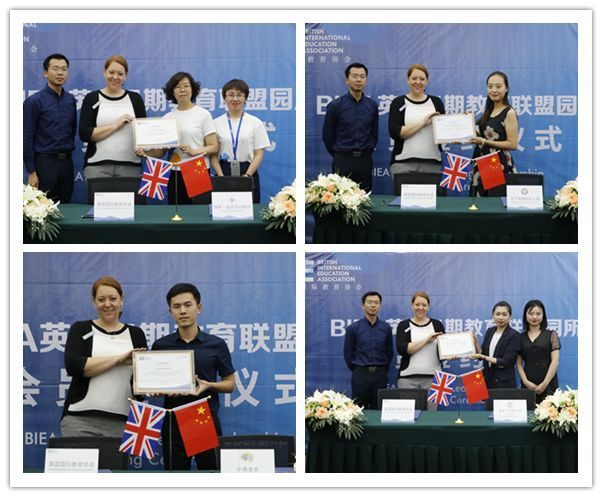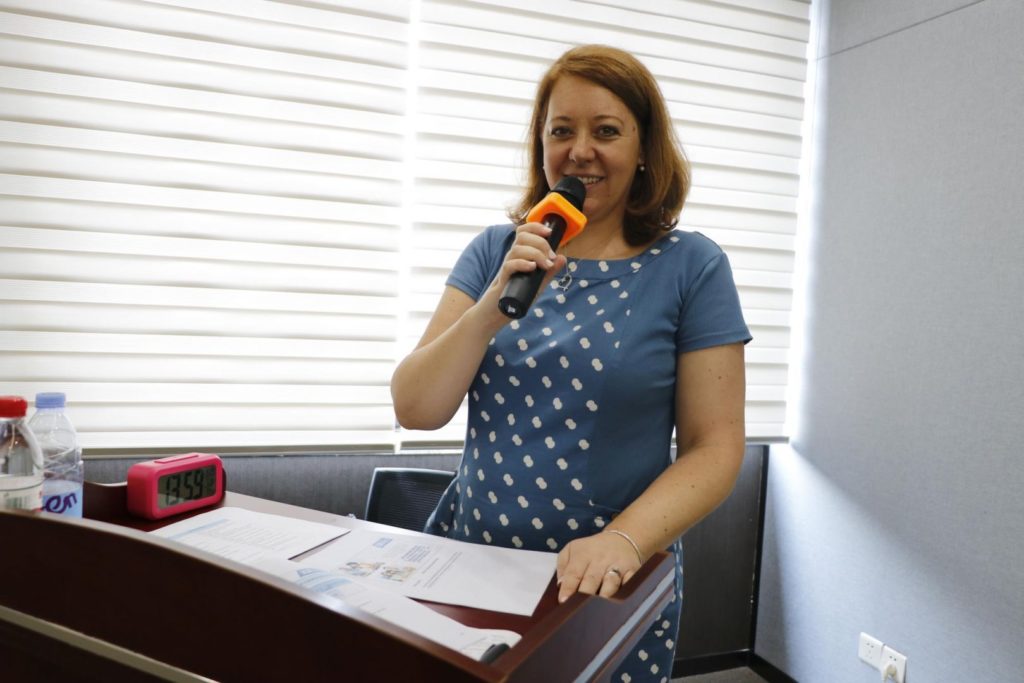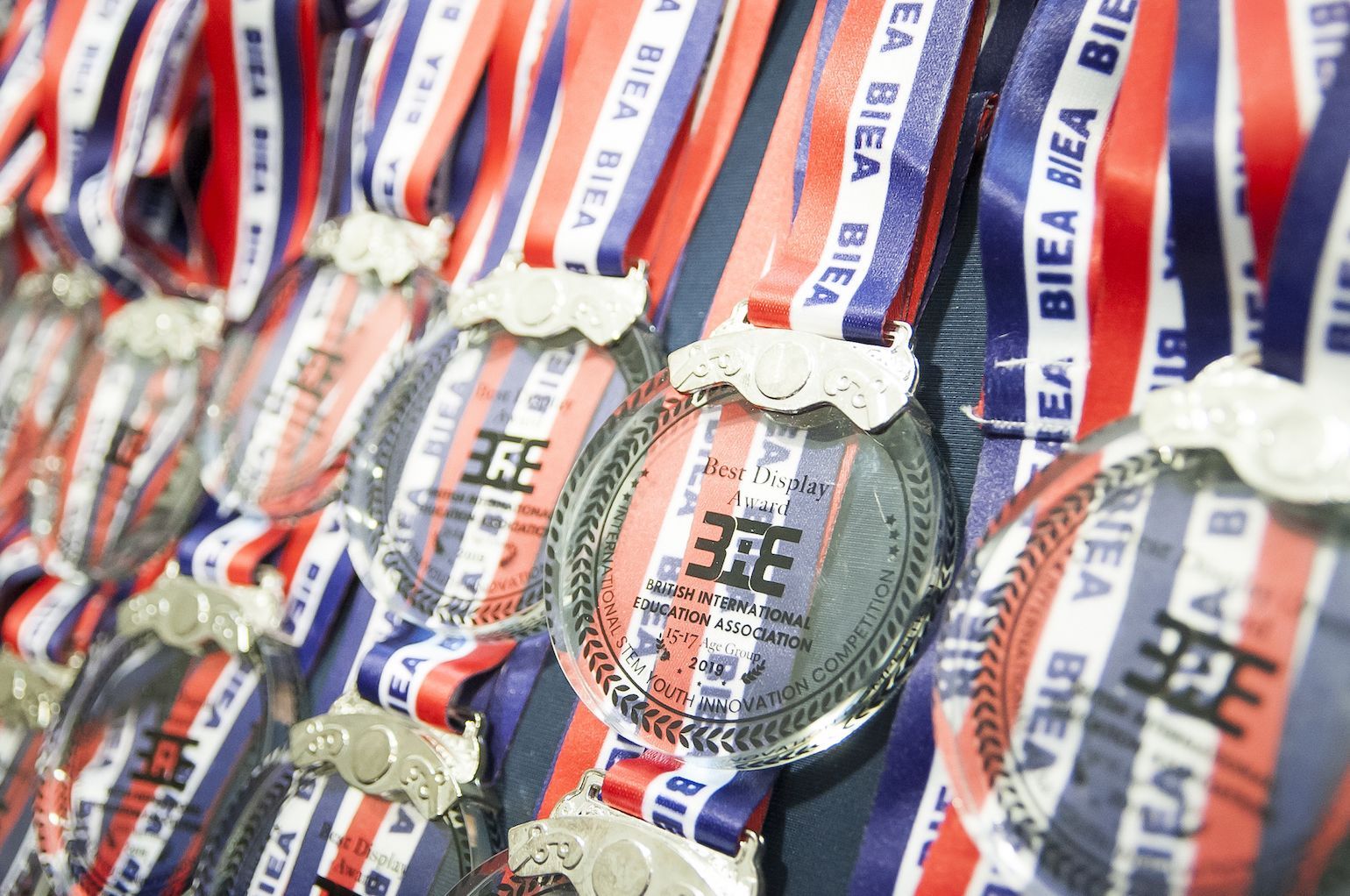BIEA and China’s Soong Ching Ling Foundation have reached a consensus on the cooperation between British and Chinese teachers
On the 19th of August, Sharron Fogarty, Head of Early Years at BIEA, and Yang Feng, Marketing Director of BIEA’s Chinese Office, visited Beijing Soong Ching Ling Science and Technology Cultural Exchange Centre. There the two individuals had a discussion with the Deputy Director and Director of the Centre, Hongtao Su and Jun Zhao, respectively; and the Deputy Director of the International Cooperation and Exchange Department of the Soong Ching Ling Foundation, Hua Yang, about the prospects of cooperation between the UK and China on early years education. Both sides reached a consensus with the intention of cooperation to allow for exchange of early years teachers. In addition, the consensus also called for the implementation of forums for the international early year’s directors. The goal is to strengthen communications between parties and allow for the easier transfer of knowledge, it was agreed that the forums will be capable of making the goal a reality.
Deputy director and director of the Soong Ching Ling Child Care Centre Jing Liu and Shufang Li escorted a visit to the Soong Ching Ling Nursery. Among attendees, the visit stimulated an understanding of the system and curriculum currently implemented in Chinese nurseries. The visit laid the foundation for the two parties to learn from each other and establish cooperation.
Jing Liu (second from left), deputy director of the Child Care Centre, introduces the nursery to Sharron Fogarty (first from right), Head of Early Years of BIEA
As of present times, China's early years education is welcoming an important stage of reform. The British EYFS has established itself internationally as a highly prestigious system in early years education. Since its implementation in the UK in 2008, the programme has put at the forefront its advanced educational philosophy and flexible teaching methods. China is open to adopting the British standard into its nursery’s curriculums, allowing for the elevation of children’s education in an ever more demanding global market.
During the visit to Soong Ching Ling Nursery, the children of Soong Ching Ling Child Care Centre greeted BIEA with a very warm and welcoming hospitality
More Chinese early years educators should learn the advanced international early years education concept, allowing for the integration of the programme into Chinese cultural characteristics. There by, enabling the cultivation of global talents in China and influencing a major trend in current educational development. The parties are confident that the discussions between BIEA and the Soong Ching Ling Foundation on Sino-British teachers' exchanges and the educational forums for directors will be of a great benefit to both parties, but most specifically, the discussions will have a huge adverse benefit for young the children who will be participating in the higher level of education.
The children of Soong Ching Ling Nursery presented a traditional Chinese clay door knocker to Sharron
BIEA and the Soong Ching Ling Foundation have previously had an on-going relationship. Prior to this meeting, BIEA Board Chairman Gareth Bullock led the team to meet with the Chinese Soong Ching Ling Foundation in Beijing and was welcomed by the Vice Chairman of the Foundation, Qun Yu. In addition, Qun visited and cheered for the Chinese team during the BIEA 2019 International STEM Youth Innovation Competition. It is believed that after the discussions cooperation between the two parties have grown stronger.
BIEA Early Years Head attends EYFS workshop in Beijing
Sharron Fogarty, Head of BIEA early years along with Yang Feng the Marketing Director of BIEA China, attended an EYFS workshop in Beijing on the 17th of August 2019. The workshop was to bring together Chinese early years educators with British early years professionals and discuss the Chinese early years educational system with a particular emphasis on the current bottleneck. The workshop attracted educators and investors from Beijing along with teachers and directors from a wide area around the city.
Sharron, who had achieved the first “Outstanding” judgement from Ofsted the British Education Standards Authority for her work on early years education in her locality, talked about British EYFS and its advantages compared to other international systems. Sharron also talked about how the four major themes and principles along with the seven learning and development fields complement each other in the British system.
Yang talked of the EYFS in China and said that strong integration and high recognition were the main objectives of teachers in China. The teachers were informed of the forthcoming launch of the BIEA E-League accreditation standard (Early Years League Qualification ELQ) for overseas early years educational institutions that adopt the British EYFS framework and showed great interest.
Having gained an understanding of the British EYFS framework and hoping to assist in its implementation in China, many of the nursery schoolteachers and directors raised questions concerning its integration into local culture. Sharron gave advice and guidance especially referencing her own experience in implementing the system in Britain. Yang went on to explain the standards and scope of the assessment of the ELQ accreditation and how to apply for it.
The open attitude towards British early years educational systems by China’s educational establishment was demonstrated by the successful completion of the Beijing EYFS workshop.
With the increasing membership of the BIEA E-League and the continuing implementation of ELQ accreditation standards, more nurseries will adopt the BIEA E-League framework. This can only improve the systems integration locally and benefit the education of young children.
Sharron Fogarty, Head of Early Years Education at the British International Education Association (BIEA) conducted a preliminary review of Dalian Wangkiu Academy on August 9th 2019. Sharron was accompanied by Yang Feng, the marketing director of BIEA China. Wangkiu Academy is a member of the BIEA E-League, and both Yang and Sharron were invited to attend the Academy’s EYFS course conference.
Wangkiu Academy provides top quality British EYFS education for children up to the age of six and is located in the Donggang business district in Dalian, Liaoning Province. The academy uses the EYFS framework and is hoping to meet the BIEA ELQ standard.
Sharron inspected both the indoor and outdoor environments of the Academy, as well as the situation of different classrooms and activity areas within the nursery that were developed according to a British EYFS framework. Sharron also reviewed the Academy’s observation and evaluation procedures, as well as giving suggestions regarding the Academy’s teaching plan.
Sharron observed classes being held at the nursery, and had discussions with the school director and teaching staff; she learnt the difficulties and the key points concerned with integrating the EYFS framework into the nursery and the wider culture.
After a succinct review of the school, Sharron was invited to attend the Academy’s EYFS course briefing meeting. She outlined the goals and teaching methods designed to enhance children’s understanding and development as propagated by the EYFS methods. This was appreciated and welcomed by the Academy.
Sharron believes that conditions in the Waingkiu Academy qualify for it to apply for the BIEA ELQ accreditation. Early Years Qualification (ELQ) is a certification that is given to overseas early years institutions by the BIEA and meets the high standard of British EYFS education. The BIEA E-League looks forward to Wangkiu Academy achieving ELQ accreditation and obtaining the support of the E-League’s various British educational resources.
27/08/2019
BIEA UK summer study tour Day 4: Nurseries visit
Bryanston Nursery
On the forth day of the study tour Claire Berridge, a staff member at Bryanston Nursery, kindly guided our participants around the facility. In addition to exhibiting the activity rooms for children of all ages, Claire also demonstrated how the “planning in the moment” initiative works to the benefit of both teachers and students. Throughout the day Claire displayed the observational activities that is partaken within the nursery and the opportunities it provides for teachers to interact with children.
The participants had the opportunity to observe a teacher who was leading a group of 3-5-year old’s, they were making pizza. Prior, the teacher had taken the children out to buy and prepare the ingredients so that the children could become familiar with the procedure and protocols surrounding the handling and use of ingredients. Claire then proceeded with sharing various teaching aids and teaching activities partaken within the nursery.
Holland Park Pre-Prep School and Nursery
Phil Culling was the guide leading the study tour today. Phil began by introducing the different age groups within the nursery. He mentioned that in the class consisting of 3-5-year old’s, the teaching activities are divided into two groups; one consisting of 3-4-year old’s whilst the other group consists of 4-5-year old's. Each group participates in respective activities that promotes cognitive thinking and the building of fundamental skills. Holland Park Pre-Prep School and Nursery also provides digital learning in combination with traditional teaching methods. This includes literacy and numeracy, in conjunction with more advanced courses for children of older ages. The institution provides this service as they believe that it better transitions their students for primary school. The nursery employs different timetables and weekly plans to adhere to a strict teaching schedule customarily implemented for their students.
Q&A
Q: Children are assessed on various areas of EYFS, so what will the final assessment report generally do?
A: In order to enable the teachers in the future primary school to understand the child's personality, characteristics and abilities, the final assessment report will be given to the child's future school, so that the teacher can teach students in accordance with their aptitude. However, this report will not be used as a standard for primary schools to choose children. Instead, after the child is determined to enter the school, this report will be given in order to understand the child as soon as possible, to strengthen and help children reach the goal of EYFS before entering primary school.
BIEA UK summer study tour Day 3: Nurseries visit
Little Angels Nursery; a private family-style nursery that adheres to the educational concept of home to home, it aims to provide a warm and safe environment to allow children to flourish in the safety that they would feel back home.
The nursery was renovated from a villa. The purpose of that was to allow the children to feel the warmth and safety they would feel back at home. On the first floor, there is a classroom catering 2-3-year olds. There is also an activity area catering for 3-5-year olds, and finally, on the second floor, there is a room catering for toddlers under the age of 2. The floors carpet is of a soft texture ensuring that it remains easy for the toddlers to crawl without the parents fearing the repercussions of injury. The entire nursery has a capacity of 39, providing full-day child care services, but not all children attend the institution daily. Parents choose which days their children should attend the institution. The nursery advocates game teaching, which is a philosophy that allows children play freely. However, 3-5-year olds participate in classes alongside play. The nursery offers literature teaching activities to ensure the children’s literacy and spelling are of a high degree, allowing children to transition into elementary school easier. During the discussion, the teachers shared the children's daily diary and how to write a self-contained toilet training manual. The parents would write about their child's situation as well as suggestions to the nursery on areas that should be improved. The enthusiasm and love each staff member showed to the children impressed our participants greatly. Every teacher is an angel who cares deeply for the children they take care off. During the visit, children were encouraged to say hello to the participants and the participants greeted them with the same hospitality. The teachers partook in the cordially greeting as well, which allowed the participants to feel at home.
Q&A:
Q: How do the toddlers under 2 years of age dine in the classroom?
A: The baby has a special independent table and chair, one set per person, completely set customarily for the size of the child. The tables are set in a circle shape, and the teacher will assist the babies who need help feeding.
Q: During the visit, I saw children quarrelling, one child bite another, how should we handle the children's injuries?
A: The teacher would conduct an analysis of the situation - if it is only a small quarrel, the teacher would stop them. If it is an ordinary injury, an emergency report will be written, and the parents will be asked for advice. In the case of serious injuries, in addition to emergency assistance, they will also have talks with their parents, tell them about the causes and consequences, and tell the parents how to solve the problem, ask the parents if they need other treatment, and complete the emergency report.
Willow Children’s Centre is a partner of Archway Nursery. The two institutions share the same headmaster and thus are inherently similar with its ideology and philosophy. In addition, Willow Children’s centre is a British public school meaning that parents do not have to pay tuition as the costs are covered by the British Government. It is an outstanding nursery recognised by the UK's Ofsted certifications board and has even won “Healthy Early Years London Gold Award” which is a prestigious award recognised by the Mayor of London. The nursery is divided into age categories with each of its four classrooms being used for different purposes; a toddler room for under 2’s, a room for 2-3-year olds, a room for 3-4-year olds, as well as an activity room for children and families with special needs. The institution also reserves a shared area for outdoor activities. There are all kinds of different games and equipment in the outdoor area, as well as a wealth of facilities to facilitate a comfortable environment for both parents and children. For example, the nursery has a separate special needs child care area and a home support area.
The teachers showed our participants how the children knew the nearby plants - by simply identifying the familiar vanilla smell.
Q&A
Q: How do children play outdoor games in such a rich activity area?
A: According to the EYFS framework, the game area is completely open to children. The free game time does not limit the children to be in a certain place, including the outdoors. All the tools and materials are provided, giving the child complete autonomy and more than three hours game time a day.
Q: Why is there a separate classroom for children who have special needs?
A: According to the government's policy, each public nursery needs to accept certain special needs children. The classroom is designed to provide an independent environment for these children under professional care from teachers, encouraging them to interact with other children happily, providing an independent environment for the child.
Immersive experience of Forest education: Enabling the teachers to explore nature like a child
On the second training day of the BIEA’s UK summer study tour, the participants were taken on an immersive forest education curriculum experience. Under the leadership of Ingrid Chen, a forest teaching expert with 5 years’ worth of experience in forest schooling, the participants were given an opportunity to explore, observe, and discover nature. Ingrid Chen mentioned “we want to involve children in forest schools, so teachers must first learn to enjoy nature and care for the environment”. In today's forest school experience, fellow teachers and Ingrid Chen shared the basic activities with taken in forest schools through demonstration in different locations such as parks and nature reserves, allowing the development of rule awareness and risk assessment of outdoor activities within the participants. The teachers were truly aware of the joys in exploring nature and the teaching philosophy centred around children.
The participants had a simulated forest education lesson in Ion Square Forest School area:
- Risk assessment: Adults should first look at the environment and try to remove or mark potential risk factors such as glass shards and animal waste. Teachers should then use flags to define and distinguish safety boundaries where children could easily be observed.
- Teaching rules: No pick, no lick - Don't let children pick up foreign objects, and especially don't let them put foreign objects in their mouth.
- One two three, base camping – When 123 is said out loud the children should return to base camp.
Forest education activities:
- Treasure hunting
Ask the children to explore the environment freely and find treasures that they like, such as animal feathers, dead branches, leaves and so on. This is usually the first activity partaken in forest education, which allows children to get acquainted with the environment and develop a deep understanding of the rules. Based on the child's ability and needs, it can be extended to create routines and to play games with other children, reinforcing the character within the child.
- Mud kitchen

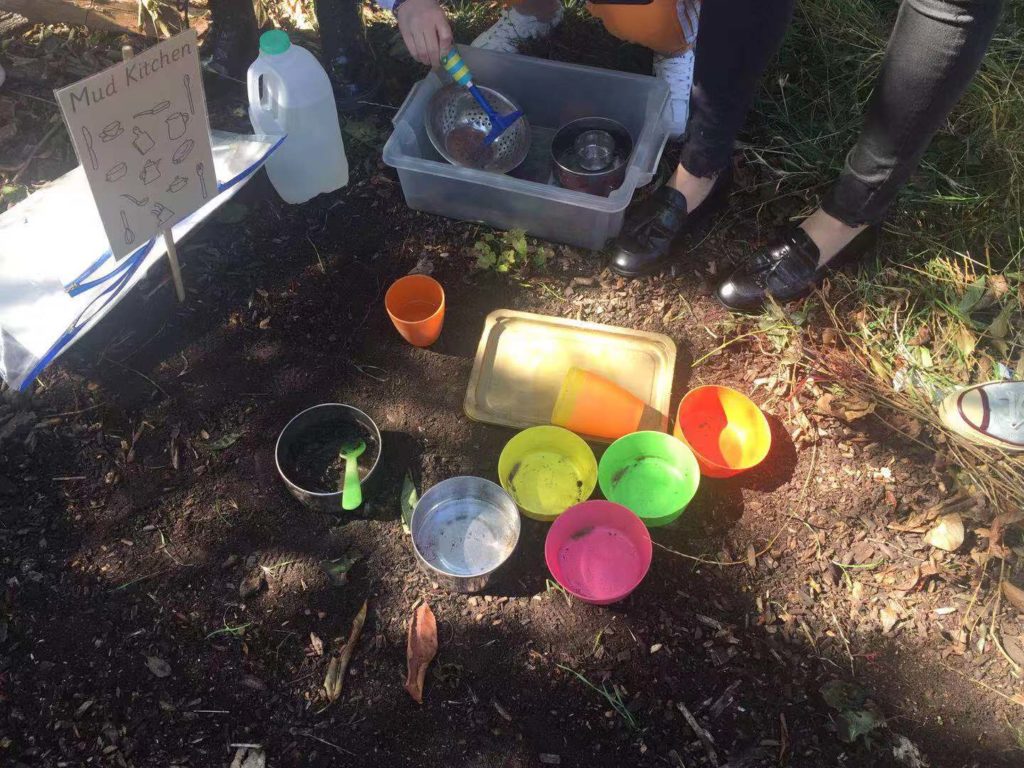
Firstly, locate a suitable soil area and then provide the children with some containers and water buckets, allowing them to play and make a mess. When the teacher observes the children playing, they will find that some children like to make mud cakes, some children may like to use wooden sticks to make a mark in the mud, or some children like to look for small bugs in the wet mud and so on. According to the children's interests and needs, the teacher will provide corresponding materials in the following forest activities as further support for the children's exploration journey, which is in line with the concepts advocated within the EYFS framework - continuous provision:
a. Bug hunting
The child will search for an insect in the mud and place it into a container. The lid of the container is designed to resemble a magnifying glass, this allows the child to observe the characteristics of the insect and learn basic entomology. The study tour participants participated within the activity and collected the insects they discovered and discussed their findings with each other.
b. Cloud marking
Ingrid demonstrated the activity of marking clouds, she laid down on the grass and observed the shape of the clouds in the sky. Ingrid then proceeded to draw the clouds on a piece of paper using a pencil. Ingrid shared with the participants that the forest school instruction manual was written by her, including; pre-preparation for forest education courses, children's dress code, risk assessment form, forest school activity plan, emergency plan, and forest school information for parents. Ingrid Chen mentioned that by nature the forest school initiative promotes conversation and the important roles humans play in careful balance of ecology.
Here were some frequently asked questions by the participants:
Q: What if a child uses the tools given as a weapon to fight other students during outdoor activities?
A: Firstly, teacher should introduce the correct usage of the tools and the precautions the children must follow if they wish to use the tools. In the process of children using tools, teachers should promptly encourage and praise the positive behaviour of children to reduce the occurrence of some negative behavioural patterns that might occur. Although sometimes the danger occurs, the teacher role is to always observe the children and prevent conflict before it happens. The teacher might say “stop” but the they should avoid using the negative expression to increase learning through negative reinforcement.
Q: Whilst searching for insects, the teacher and the children exchanged discussions about finding insects. What if an insect was found that the teacher was unaware of?
A: This happens very often. We will usually discuss with the children "what are you looking for? Where did you find it? What do you think it looks like?”. Teachers, like children, are all explorers who are curious about nature. Our interest in nature does not mean that we must become knowledgeable entomologists or scientists. The most important thing is the process of exploration and inspiring children's curiosity about nature. How the child is really interested in an insect will allow the child to develop their own understanding of it, but they may also ask the teacher questions. Therefore, it would be advantageous to the teacher if they prepared some books about insects and plants prior, but these should only be for the older children or children who have a particularly strong desire for knowledge.
BIEA UK summer study tour Day 1: Early Years Foundation Stage (EYFS) early years education practice
On the 12th of August 2019 BIEA's summer UK study tour finally begun. Eleven teachers from China arrived in London. The participants were greeted by Claire Berridge, a lecturer from Bryanston Nursery, who has gained more than 20 years’ of experience in early years education as well as possessing a Bachelor of Arts degree in IOE Education. Claire Berridge shared the fundamentals and her experiences working within early years education (0-3 years old) and used Bryanston Nursery as an example of how early years education is handled properly in the UK. Ms. Mita Pandy, Archway Nursery Director led the participants to visit the entire nursery. The participants interacted with Claire who enthusiastically and actively discussed with Mita how EYFS supports the development of early years education.
- Core theory - child centred learning
Claire emphasised that the most important thing in early years education is to know that the child is the core focus. Each child should be treated as a separate and special individual. Each week, 4-5 children will be selected as the focus. The teacher will carefully observe them and write detailed observational reports, including details of daily life and even the child’s eating routines. The most important thing about the observational report is to allow the teacher to learn more about the child. This includes the child's interest, which the teachers would use to build an appropriate teaching schedule full of activities the child can learn the most from. A strict rotary is followed to allow every child to be at the focus of the observation, which provides opportunities for all the children to grow into independent, confident and successful academic students. The participants stated that the core of China's early years education is also child centred, and that they share common ideas and philosophies within their respective early year’s education fields.
On the other hand, the child centred learning also relies on many positive daily interactions with qualified, caring and attentive early years education teachers. The teacher is not only an observer, but also an examiner. In the process of interacting with the child, the teacher understands and discovers the child's abilities, interest and emotions. It is difficult to grasp the skills required to deeply understand a child, but it all starts with being an attentive listener and having a keen eye to observe what most would simply neglect. Claire used a good example to demonstrate how one can learn from a child’s behaviour. When a child is playing with a car, the teacher might ask questions about the child's mathematical ability, such as "how many cars do you have?". The child might refuse to answer because they know that the teacher can count and is therefore testing them. But when the teacher asks, "could you give me an X number of cars?", the child may not only fulfil their request, but also share their toys with the teacher. This is a positive interaction that reinforces the student teacher relationship mentioned in EYFS.
- Learning through playing
Claire mentioned that there is no teaching plan in their nursery, because the children are learning during play sessions. She believes that every play session is an exploration of oneself. What the child learns in the process of playing is creativity, critical thinking, problem solving skills, perseverance, and interpersonal skills. These are the learning goals emphasised in EYFS which would help to refine the child into become a good citizen within society when they grow up. Children's learning is critical, and children aged between 0-3 learn most about the delicate societal norms we face in everyday life when they play with other children. When the child reaches 5-6 years old, they gain the cognitive ability to learn about words and numbers, and thus, the teaching style of the teacher must adapt too. The participants were made aware of the significance of play.
- Key person system
For the care of children aged 0-3 years old, the “key person system” is a very important individual to them. Claire said that in her nursery, each child has a fixed key person for intimate care and family communication. The participants felt very helpful when Claire shared how her nursery implemented the “key person system”. The intimate role of the key person mainly includes changing diapers and napping them, and these intimate behavioural patterns allows the key person to quickly establish an attachment relationship with the child allowing the child to build a sense of security within the nursery. It is also important to establish contact with the family. The key person is the first contact for the parents and is the one within the nursery that understands the child the most. After the parents understand the child's situation, the child's care in the nursery is consistent with the parents’ care of the child at home, this includes, living habits, toys and even food. Parents need to complete the EYFS assessment report every three months, whilst the teachers complete the observational report regularly, allowing the nursery to document the child’s progress and highlight areas that need more focus within the child’s care.
- Archway visit
After a short break, the participants visited the Archway Nursery under the leadership of Mita. The participants expressed their great interest. There is an outdoor activity area, which is like a small forest. In addition to the garden, where children can pick vegetables for salads, there is also a small farm in which chickens hatch eggs. The location was deliberately set up as a “risky environment” for the children. It did this through including big rocks, pools and even poisonous plants. The teachers hoped that this real environment can allow children to build a sense of danger to increase their situational awareness skills. This is one of the concepts under the EYFS framework.
Hanlin C. World Kindergarten becomes the first member of BIEA E-League in the Hebei region
We are proud to introduce Hanlin C.World Kindergarten into the BIEA family. The kindergarten, situated in Hebei region, has become the first kindergarten in its region to become a member of BIEA E-League. The E-League aims to provide the best of British early years education (EYFS – Early Years Foundation Stage) whilst also adapting the British education system to fit the local culture. This allows young academics to experience a prestigious internationally recognised education without losing touch of their wonderful culture.
Hanlin C.World Kindergarten is an international nursery located in Shijiazhuang high-tech zone. The 24,000 square metered institution puts the natural ecology of the land at the forefront. This allows the young academics to grow up conscience of the Earth around them so that in their later years they can join the fight for conservation. The institution also has a construction area of 13,000 square meters. As the nursery is an extension of the Hanlin Education Group it adheres to the philosophy of the “happiness education” aim, which has continued to flourish since it was introduced 18 years ago.
The natural ecology of the land in combination with the “happiness education” philosophy has resulted in the nursery aiming to create a “fairy tale kingdom”. Hanlin C.World does this by incorporating the near-by forests in tangent with castles to allow the young academics to free their mind and let their creativity be at the forefront. As a result of Hanlin C.World joining the BIEA E-League the nursery has actively participated in the UK CPD training course organised by BIEA. With the integration of EYFS into China’s rich and traditional culture it will allow the children to boost their inter-personal capabilities whilst also having the adverse effect of bringing the children closer to nature by building on Hanlin C.World’s ecology focus.
Through their involvement in the E-League Hanlin C.World’s 39 teachers have received training in Guangzhou, which has allowed them to actively interact with EYFS experts from the UK. The training course has promoted Hanlin C.World’s teachers to established a systematic understanding of the UK EYFS education framework, which helps to develop children to become more independent, confident, curious, comprehensive and love learning. This has given Hanlin C.World’s teachers the opportunity to incorporate the depth of knowledge contained in British education into their curriculums and teaching styles to promote a better standard of teaching.
To conclude, Hanlin C.World Kindergarten’s focus on an ecological education not only includes a wide range of outdoor activities (football fields, golf courses, etc.), but also a very warm and scientific indoor environment (home-style classrooms, independent activity rooms, chlorine-free indoor swimming pool, etc). The E-League course will allow teachers to focus on the core values of EYFS; a safe child-centred education, a deep and rich education programme that has been refined to perfection over centuries, and a rigorous training course to allow Hanlin C.World to make the most of their first-class facilities in an effective but safe way.
BIEA E-League UK EYFS teacher vocational training in Guangzhou
The latest British EYFS Teacher Vocational Training course of the BIEA E-League was held in Guangzhou between the 26th and the 28th of July. British EYFS expert Angela Fedi led early years teachers from across the country in a study of EYFS basic knowledge and understanding.
The teachers were enthusiastic concerning the EYFS teaching and paid close attention to the lecture. Ms Fedi illustrated means by which teachers can more effectively interact with children using EYFS procedure and led discussions regarding this and other classroom issues.
Teachers who are conducting group discussions in class
Angela Fedi, who has had nearly twenty years of experience in nursery education, gave an example of positive interaction with a class. “In nurseries in the UK, and when children are playing their own games, children may compete for a toy or space. The teacher will usually stand by and watch the children deal with the matter amicably. Once a child’s argument is becoming out of control the teacher will intervene but if the children are discussing the matter in a positive manner the teacher will withdraw and watch the children resolve the matter themselves.”
Angela went on to further illustrate EYFS teaching practice using the ideas expressed in the publication “Development is Important” regarding the seven major areas which increased enthusiasm within the classroom and enabling an understanding and creating a favourable environment for EYFS education to flourish. The teachers formed seven groups, each one representing an EYFS learning field, and discussed their various relevance to creating good conditions for EYFS practice to operate as mentioned in “Development is Important”.
BIEA E-League signing ceremony with nursery members
In addition, during the break time, the organiser BIEA E-League also held an on-site signing ceremony with Hanlin C.World Kindergarten, Waddington International Kindergarten, Deer Idol and Inbay Starson Nature Education Garden.
Lecturer Angela Fedi
Ms Fedi believes that Chinese teachers have a great enthusiasm and ability to understand and practice advanced UK early years education methods. She was impressed by the quality of the class.
The marketing department of the BIEA E-League carried out a training evaluating afterwards and found a unanimous satisfaction amongst those who had attended. The BIEA E-League UK EYFS teacher vocational training in Guangzhou was successfully concluded. The next EYFS training will start in Beijing in August.
BIEA 2019 International STEM Youth Innovation Competition was successfully concluded and animal protection proved to be a popular theme
The BIEA 2019 International STEM Youth Innovation Competition ended at the RAF museum with the finals being held on the 4th of July. Twenty-eight finalists from the UK, USA, India, Bosnia and Herzegovina, Poland and others competed. Embassy officials, STEM experts, educational and industrial representatives witnessed the judging and participated in the awards ceremony.
Professor Claudio Sillero, Chief Scientist of The Born Free Foundation said “This STEM competition with the theme “Fighting Extinction via Drone Technology” has not only won the praise of the guests, teachers and students, but we are even more pleased that the competition has also brought a very positive impact on the global animal protection initiative, encouraging society to use advanced science and technology to protect animals and the earth.”
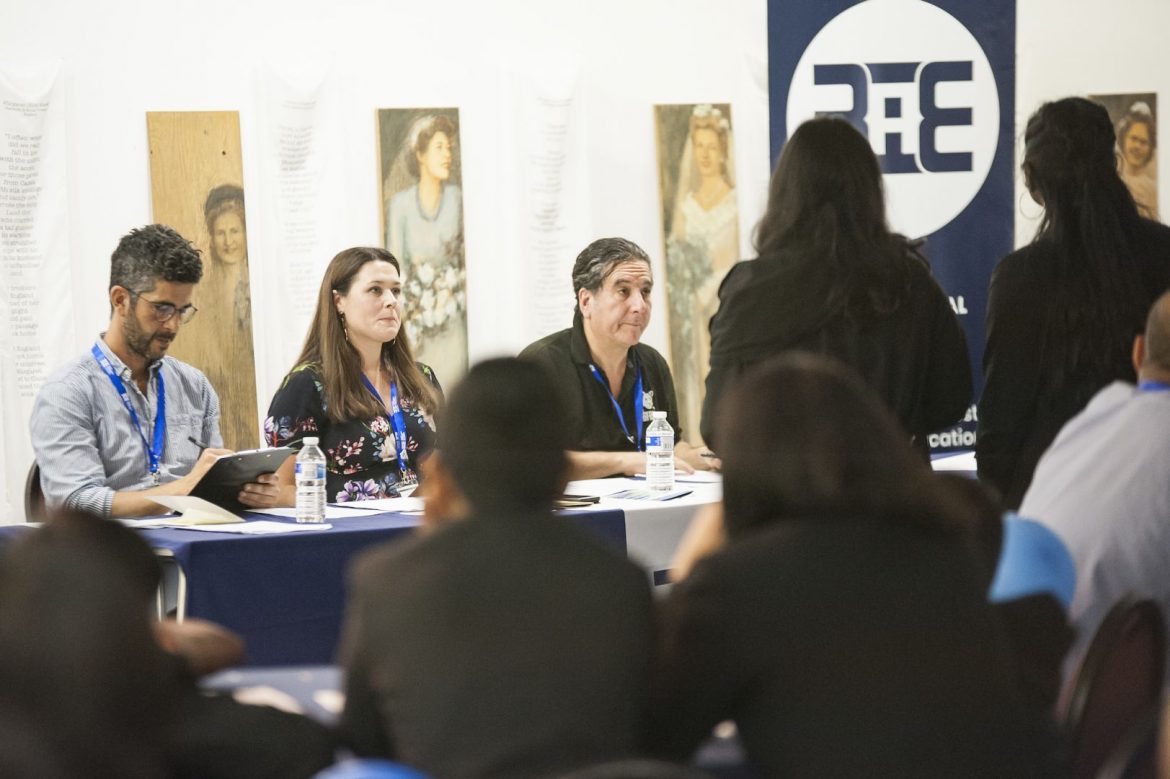

Professor Claudio (third from left) served as a judge in the evaluation session
Wei Lai from Central St Martins College, who participated in the design of the flying venue at the finals, said “I have participated in many design projects but never in a project like this. It’s fascinating. The biggest difficulty was simulating reality and abiding by the strict material requirements. With the theme being animal protection all material used had to be environmentally friendly. Forest, ocean and desert had to be simulated. Much of the material used was from recycled everyday objects. We also managed to get The National Theatre to rent us life-sized animal models to keep costs down.
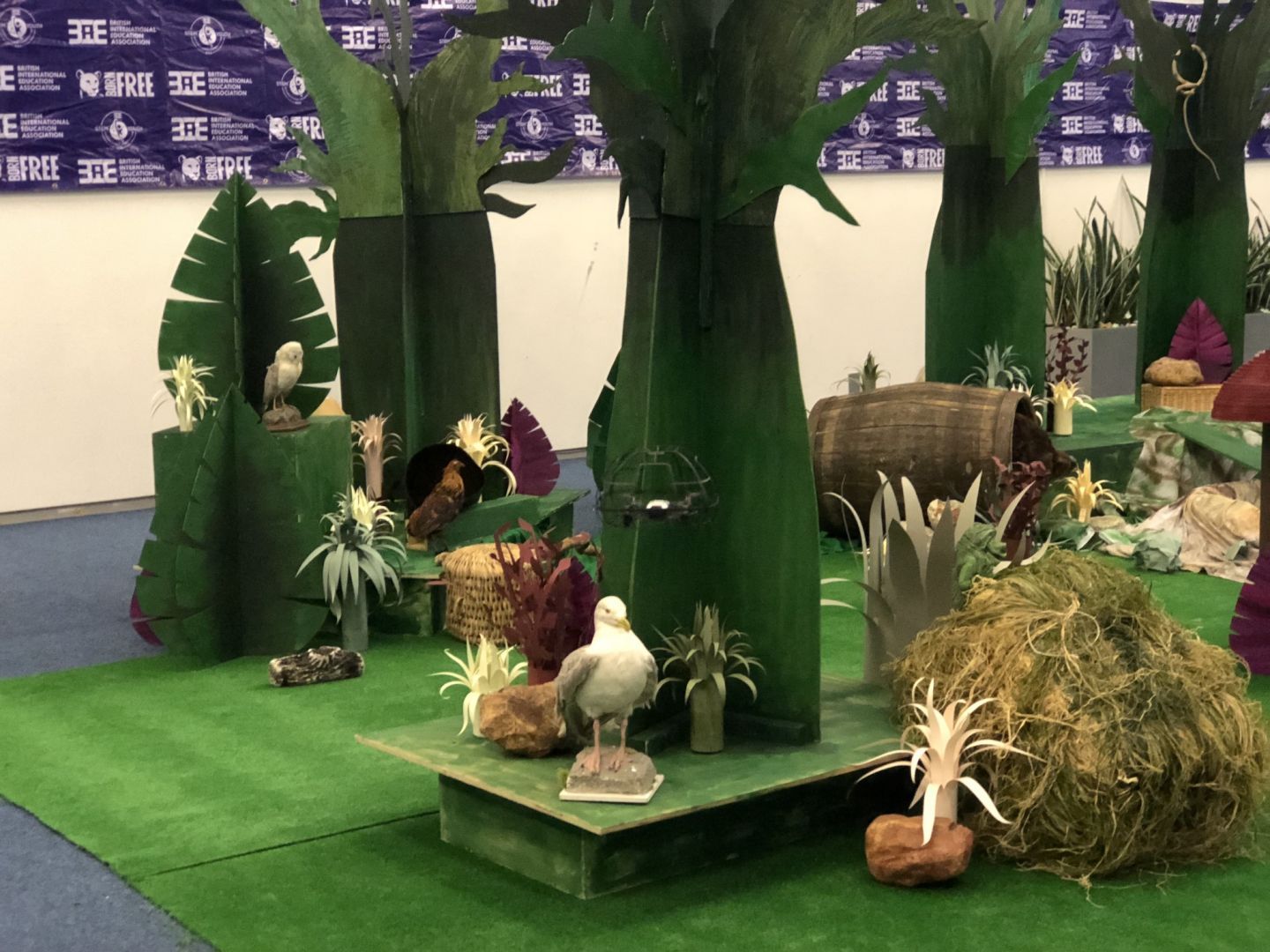

Flying hall scene
It took a year from the competition initiation to the finals in July. All the effort and hard work made the BIEA Youth Innovation Competition a great success in practice and in significance. Whilst emphasising the importance of animal preservation the theme of the competition also signified the potential of technological innovation in helping to achieve such a goal. Schools and children from around the world entered with enthusiasm for utilising STEM and drone technology to save animal species.
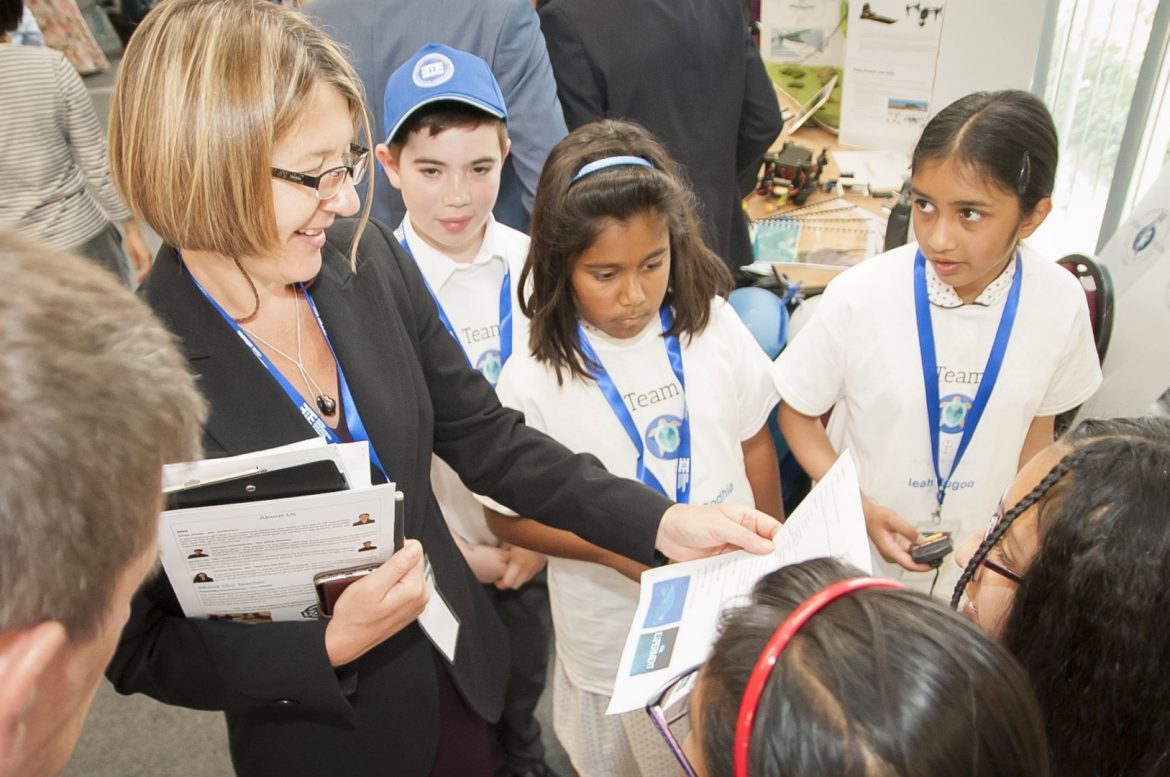

Dr. Holmes served as a judge at the presentations
Winner of The National Science Teaching Award and chief designer of the competition Dr Alex Holmes said “In this competition the number of rare animals studied is exciting. Many animals selected are related to the regions where the school teams come from which enables us to understand a lot about the animals while also learning about STEM. For example, Coleraine Grammar School has studied the Basking Shark which visits Irish waters but is rarely seen. A team from Sheffield Park Academy chose to help protect the Tasmanian Devil, other teams chose the scorpion, the Red Wolf, Markhors or wild goats, Snow leopards and Red Pandas. The enthusiasm with which the creative animal research and subsequent drone design was carried out deeply touched the hearts of the judges. Species preservation has never been as important as it is at present and it is gratifying that younger generations are confronting this now. All who participated in the competition have made a contribution to working towards confronting this crisis.”
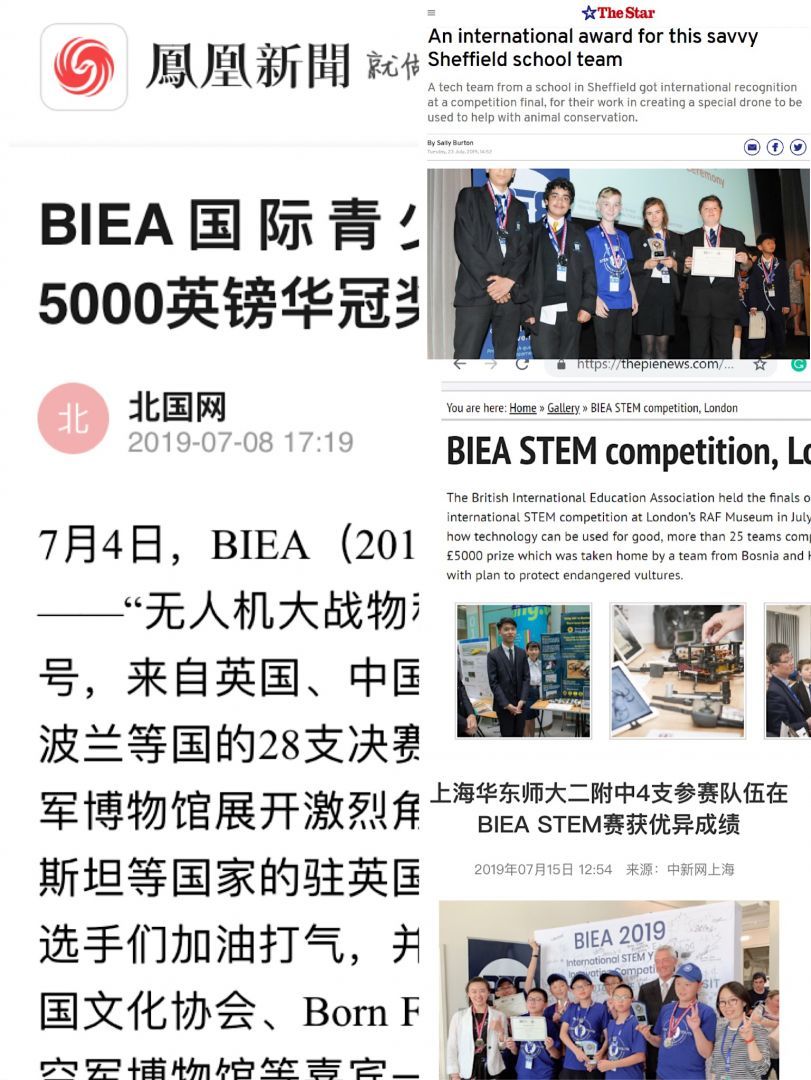

Screenshots of some media reports locally and abroad
The International STEM Youth Innovation Competition successfully stimulated an interest and enthusiasm amongst the young in using modern technology to help in animal and environmental preservation.
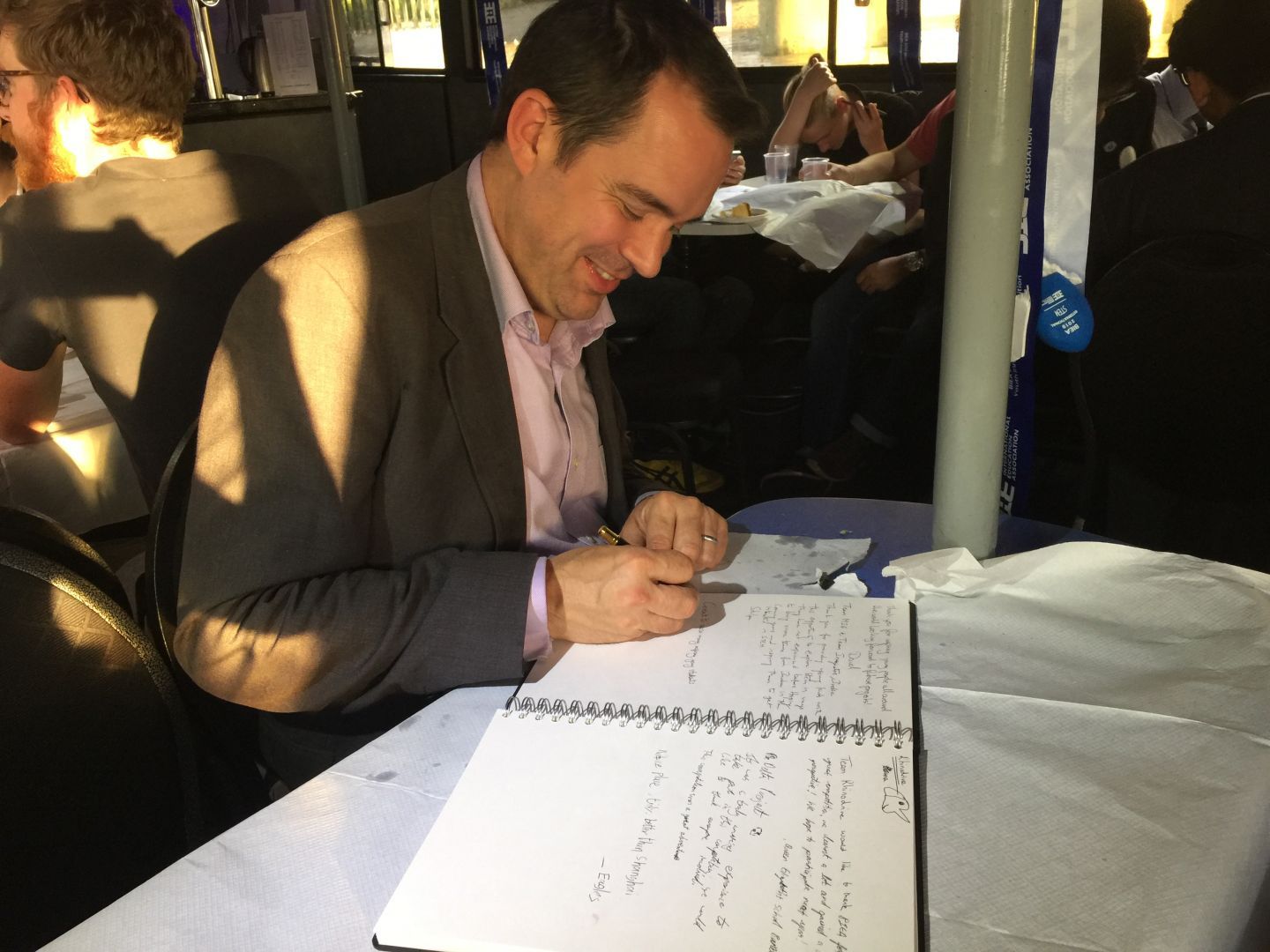

Adrian attended the celebration cruise dinner
The STEM consultant of the British Council, Adrian Fenton, said of the competition, “This competition brings together teenagers from all over the world to provide them with opportunities to learn STEM skills and exchange ideas, providing them with a platform to benefit humanity and protect animals using technology. I am full of expectations for next year’s competition, which will be more and more exciting!”

